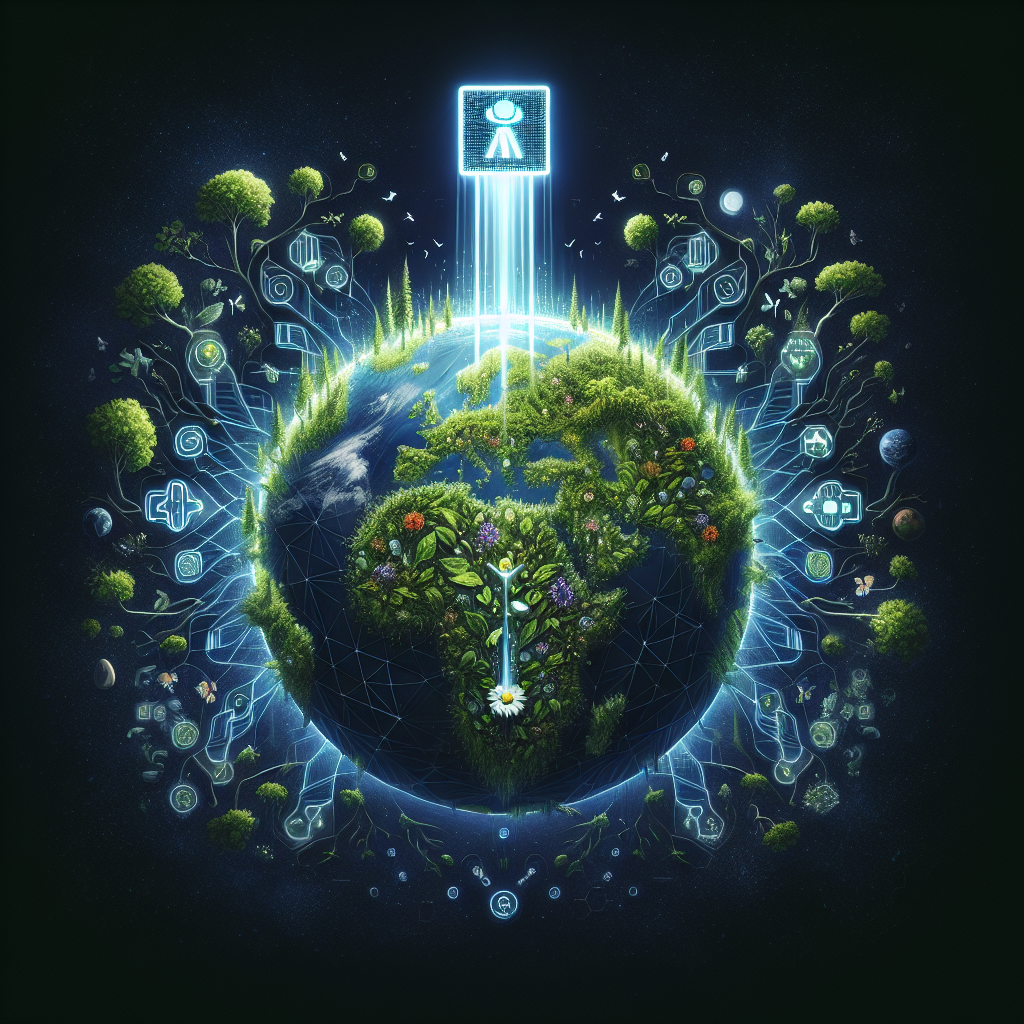Artificial General Intelligence (AGI) is a rapidly advancing field that has the potential to transform the way we approach environmental issues and help save the planet. As the world faces unprecedented challenges such as climate change, deforestation, pollution, and resource depletion, the role of AI in addressing these challenges becomes increasingly important. In this article, we will explore how AGI can be utilized to protect and preserve the environment, as well as address common questions and concerns about AI and its impact on the planet.
AGI and the Environment
AGI refers to a form of artificial intelligence that possesses the ability to understand and learn any intellectual task that a human being can. This type of AI is capable of reasoning, problem-solving, and making decisions in a wide range of complex situations, making it a powerful tool for addressing environmental issues.
One of the key ways in which AGI can help save the planet is through data analysis and predictive modeling. By analyzing vast amounts of environmental data, AGI can identify patterns, trends, and correlations that humans may not be able to see. This can help scientists and policymakers make more informed decisions about how to manage resources, reduce pollution, and mitigate the impacts of climate change.
AGI can also be used to optimize resource use and reduce waste. By analyzing data on energy consumption, water usage, and waste production, AI systems can identify inefficiencies and suggest ways to improve resource management. For example, AGI can help companies optimize their supply chains to reduce emissions and waste, or help cities design more efficient transportation systems to reduce congestion and pollution.
In addition, AGI can be used to monitor and manage ecosystems in real-time. By deploying sensors and drones equipped with AI algorithms, researchers can collect data on biodiversity, habitat health, and ecosystem dynamics. This information can be used to identify threats to ecosystems, such as invasive species or pollution, and develop targeted conservation strategies to protect vulnerable species and habitats.
Furthermore, AGI can help predict and prevent natural disasters. By analyzing historical data and real-time information, AI systems can forecast extreme weather events, earthquakes, and other natural disasters with greater accuracy. This can help communities prepare for disasters, evacuate residents in advance, and minimize the impact of these events on human lives and infrastructure.
FAQs
1. Will AI replace human workers in environmental conservation efforts?
While AI has the potential to automate certain tasks in environmental conservation, such as data analysis and monitoring, it is unlikely to replace human workers entirely. AI systems are best used as tools to augment human capabilities, rather than replace them. Human expertise, creativity, and empathy are still essential for addressing complex environmental challenges that require a deep understanding of ecological systems and social dynamics.
2. Can AI be biased in its decision-making regarding environmental issues?
Like any technology, AI systems can be biased if they are trained on biased data or designed with biased algorithms. It is important for developers to ensure that AI systems are trained on diverse and unbiased data sets, and to regularly audit and monitor their performance to detect and address any biases that may arise. Transparency and accountability are key principles in the development and deployment of AI systems to ensure that they make fair and ethical decisions.
3. How can AI help address the global climate crisis?
AI can help address the global climate crisis by optimizing energy use, improving resource management, and developing innovative solutions to reduce emissions and mitigate the impacts of climate change. For example, AI can help optimize renewable energy systems, such as solar and wind power, to increase efficiency and reduce costs. AI can also help design more energy-efficient buildings, transportation systems, and industrial processes to reduce carbon emissions and combat climate change.
4. What are the ethical considerations of using AI in environmental conservation?
There are several ethical considerations to keep in mind when using AI in environmental conservation. These include concerns about privacy, data security, and the impact on local communities and indigenous peoples. It is important for developers and policymakers to engage with stakeholders, including local communities and environmental organizations, to ensure that AI systems are deployed in a responsible and ethical manner that respects the rights and interests of all parties involved.
In conclusion, AGI has the potential to revolutionize the way we address environmental challenges and help save the planet. By leveraging the power of AI to analyze data, optimize resource use, and monitor ecosystems, we can make more informed decisions and take proactive steps to protect and preserve the environment for future generations. However, it is important to approach the development and deployment of AI systems in a responsible and ethical manner, taking into account the diverse interests and needs of all stakeholders involved. With careful planning and collaboration, AI can be a powerful tool for addressing environmental issues and creating a more sustainable future for all.

